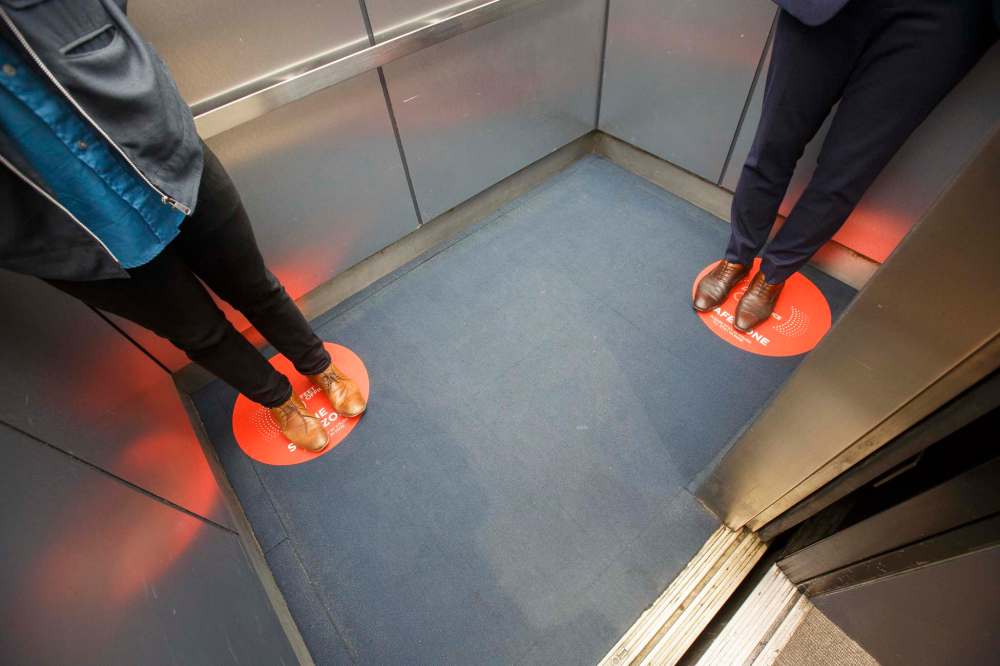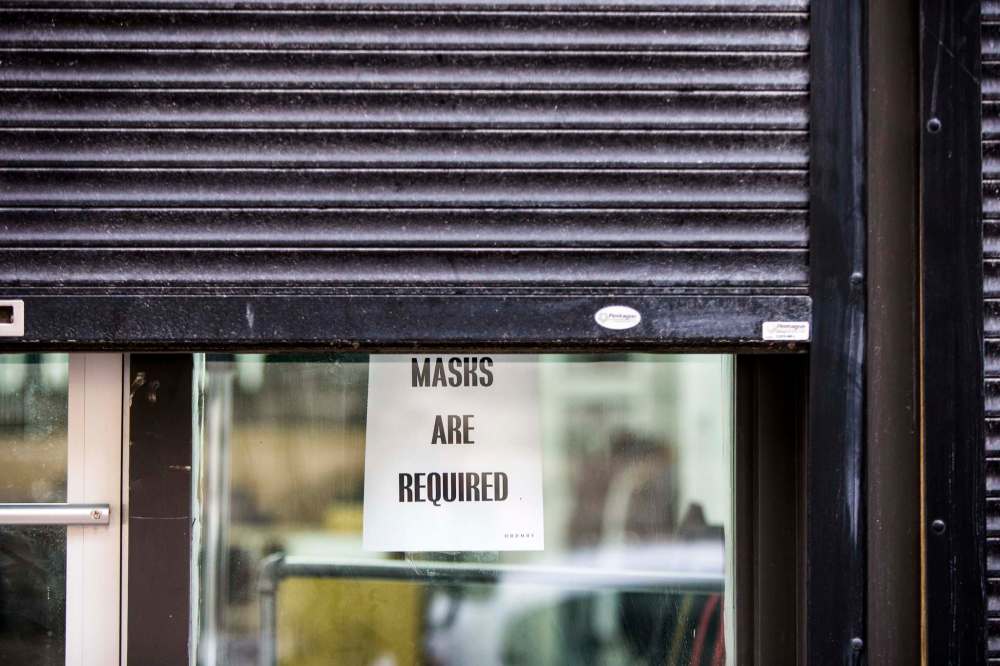Data shows Manitoba’s ‘balanced’ pandemic response is a misguided one
Read this article for free:
or
Already have an account? Log in here »
To continue reading, please subscribe:
Monthly Digital Subscription
$0 for the first 4 weeks*
- Enjoy unlimited reading on winnipegfreepress.com
- Read the E-Edition, our digital replica newspaper
- Access News Break, our award-winning app
- Play interactive puzzles
*No charge for 4 weeks then price increases to the regular rate of $19.00 plus GST every four weeks. Offer available to new and qualified returning subscribers only. Cancel any time.
Monthly Digital Subscription
$4.75/week*
- Enjoy unlimited reading on winnipegfreepress.com
- Read the E-Edition, our digital replica newspaper
- Access News Break, our award-winning app
- Play interactive puzzles
*Billed as $19 plus GST every four weeks. Cancel any time.
To continue reading, please subscribe:
Add Free Press access to your Brandon Sun subscription for only an additional
$1 for the first 4 weeks*
*Your next subscription payment will increase by $1.00 and you will be charged $16.99 plus GST for four weeks. After four weeks, your payment will increase to $23.99 plus GST every four weeks.
Read unlimited articles for free today:
or
Already have an account? Log in here »
Hey there, time traveller!
This article was published 13/11/2020 (1859 days ago), so information in it may no longer be current.
Here’s the thing about economic and social restrictions.
Reading the most recent data available, it seems to matter less how severely you restrict social and economic activity. What really matters is how long you’re in some level of lockdown, and how successfully it controls the spread of COVID-19.
Although very subtle, it’s a critically important realization that suggests most of what we’ve done to slow the spread of the novel coronavirus, while well intentioned, has been quite misguided.
Manitoba is an excellent case in point. Since the beginning of the pandemic, Premier Brian Pallister and Dr. Brent Roussin, the chief provincial public health officer, have preached the benefits of the “balanced approach.” This involves very slow, very iterative increases in social and economic restrictions in lockstep with fluctuations in the number of new, confirmed cases.
Manitoba is hardly alone in that approach. But as we log more months of data about the social and economic impacts of the pandemic, we can begin to compare strategies and jurisdictions. And using the most available research, two conclusions are coming into focus.
First, social and economic lockdowns that are shorter in duration but more severe in their restrictions ultimately do less to harm an economy and the people within it than longer periods involving less-severe restrictions.
And second, that even in the absence of a state-mandated lockdown, many of us are voluntarily curbing our activities outside the house. So much so, that even in the absence of mandated restrictions, economic activity is being severely curtailed as people change their behaviour to avoid contracting COVID-19.
In early September, the Oxford University Martin Programme on Global Development published an analysis that compared losses in GDP with COVID-19 death rates. The authors admitted that they started with an assumption that the only way to save lives was to cripple the economy with lockdowns.
However, the study found the opposite. “Countries that have managed to protect their population’s health in the pandemic have generally also protected their economy too.” In other words, countries that moved quickly with deeper pandemic restrictions not only suffered fewer deaths, they also saw bigger rebounds in economic activity.
The survey found that three-quarters of the economists believe the U.S. would have a stronger economy if it had imposed deeper, more lasting restrictions in the spring, allowing for a “smoother and more comprehensive return to economic activity later on.” – Fivethirtyeight.com survey
These findings have been reinforced by many other sources.
In late September, FiveThirtyEight.com, Nate Silver’s multi-faceted data analytics website, did a survey of 32 of leading quantitative macroeconomists about whether the early lockdowns in the U.S. had been too aggressive or not aggressive enough.
The survey found that three-quarters of the economists believe the U.S. would have a stronger economy if it had imposed deeper, more lasting restrictions in the spring, allowing for a “smoother and more comprehensive return to economic activity later on.”
In the first week of October, the International Monetary Fund released initial data from an analysis of pandemic controls and economic conditions in countries around the world. It found that more severe “lockdowns impose short-term costs but may lead to a faster economic recovery as they lower infections and thus the extent of voluntary social distancing.”

The key element in that statement is “voluntary social distancing,” which is a concept that is becoming more and more important in determining future pandemic strategy. The IMF cautioned governments from ignoring the number of people who are voluntarily staying at home and eschewing normal economic activities when they make decisions on lifting legal lockdowns.
In other words, the only thing that really jumpstarts the economy is proof that risk of COVID-19 has declined, and that may not come until a vaccine is approved and distributed.
There are numerous examples of the IMF analysis in action. In early October, the New York Times did a feature on Iowa. Although Iowa did follow other states with a pretty severe lockdown late last winter, it never imposed a stay-at-home order and, by May 1, had mostly reopened its economy with only minimal caveats.
However, beyond an initial uptick in spending and hiring, Iowa’s economy has not outperformed other, neighbouring states that had more severe restrictions. “You can’t just open the economy and expect everything to go back to pre-COVID levels,” Harvard Business School associate professor Michael Luca told the New York Times. “If a market is not safe, people won’t participate in it.”

All this empirical data should — emphasis on should — have a huge impact on Manitoba’s future pandemic response.
Since the beginning, this province has been late in imposing broad, simple restrictions such as a mandatory mask order for indoor spaces. There can be little doubt that the delay in imposing that measure — we were up to a month later than most other provinces — is playing a role in our current predicament.
Pallister has tried recently to shift credit, or blame, as the case may be, to Roussin for decisions on the type and magnitude of restrictions that are being introduced. But legally, Roussin is only an adviser; Pallister is the man with his hands on the pandemic-response wheel.
And to date, Pallister’s strategy has failed. One can only hope that sometime in the next few weeks he reads up on what’s going on in other places and — when it’s time to consider reopening the economy — he makes a more informed decision. Otherwise, we risk being caught in an endless state of partial lockdown.
dan.lett@freepress.mb.ca

Dan Lett is a columnist for the Free Press, providing opinion and commentary on politics in Winnipeg and beyond. Born and raised in Toronto, Dan joined the Free Press in 1986. Read more about Dan.
Dan’s columns are built on facts and reactions, but offer his personal views through arguments and analysis. The Free Press’ editing team reviews Dan’s columns before they are posted online or published in print — part of the our tradition, since 1872, of producing reliable independent journalism. Read more about Free Press’s history and mandate, and learn how our newsroom operates.
Our newsroom depends on a growing audience of readers to power our journalism. If you are not a paid reader, please consider becoming a subscriber.
Our newsroom depends on its audience of readers to power our journalism. Thank you for your support.






